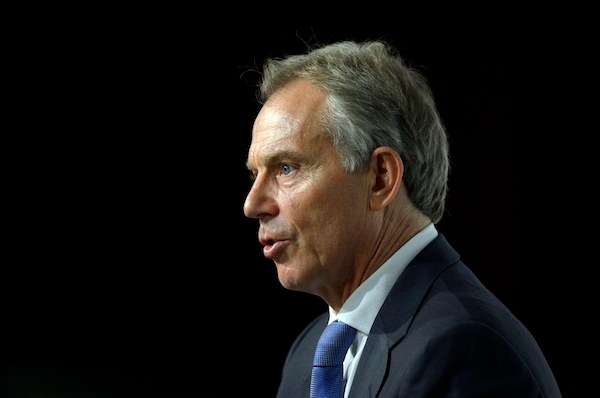Tony Blair gave a speech today in which he proposed a ‘Grand Bargain’ to revive the European Union. One of the proposals in this grand bargain is – and Blair is clearly speaking entirely without self-interest – that there be an elected president of the European Commission or European Council. The former Prime Minister told the Council for the Future of Europe in Berlin:
‘Let me make a few quick reflections. A Europe-wide election for the Presidency of the Commission or Council is the most direct way to involve the public. An election for a big post held by one person – this people can understand. The problem with the European Parliament is that though clearly democratically elected, my experience is people don’t feel close to their MEPs. This could change but only if the European Parliament and national parliaments interact far more closely.’
Blair said the current crisis in the eurozone is ‘the most serious to have faced the EU since its inception’ but that ‘we should recognise that the underlying, profound rationale for Europe and its union is stronger than ever’, with eurosceptics standing ‘on the wrong side of history’. Again, this optimism and strong support for the EU have nothing at all to do with Blair’s interest in any future role for himself within the European Union.
But where he does sound a note of caution is on how the eurozone can integrate more closely without the risk of a two-speed Europe. He warns that ‘it is massively in Britain’s interest not to play short-term politics with this issue’ and that the UK must work to prevent there being a ‘complete divergence in political structures’ as eurozone countries form a closer political union. The EU in its current form would be heading for a break-up if reforms to the eurozone lead to a two-speed Europe,he predicts.
The luxury that Blair has on the issue of Britain in Europe is that he doesn’t need to play short-term politics (unless there is indeed a Europe-wide election for the Presidency of the Commission or Council) on the matter: he has no party to placate. So he can say that Britain’s success in negotiating on the European budget and banking union will be a test of ‘whether such constructive engagement can yield an optimal outcome’ while the EU must also recognise and accommodate ‘the UK’s very special position in the financial sector’.
This might be translated as ‘David Cameron making a decision in the interests of the European Union rather than listening to his backbench’. A compromise by the rest of the EU member states in the negotiations seems almost an afterthought. And if Blair thinks ‘constructive engagement’ involves the Prime Minister not vetoing any real-terms increases in the EU multiannual budget, then he may find himself as sorely disappointed as Cameron’s backbenchers will be that Britain hasn’t pressed for a real-terms cut.







Comments